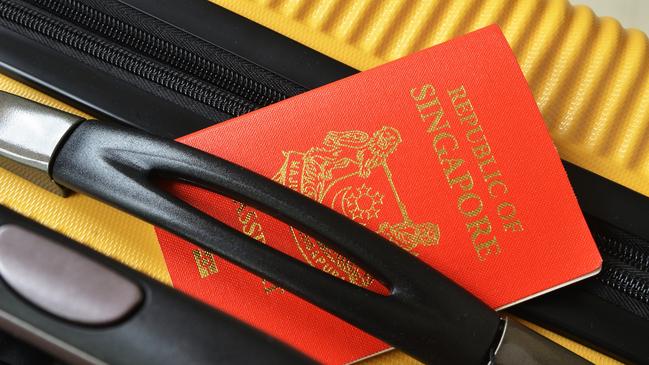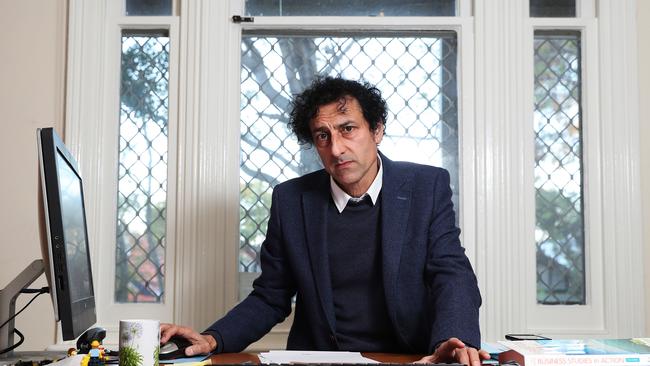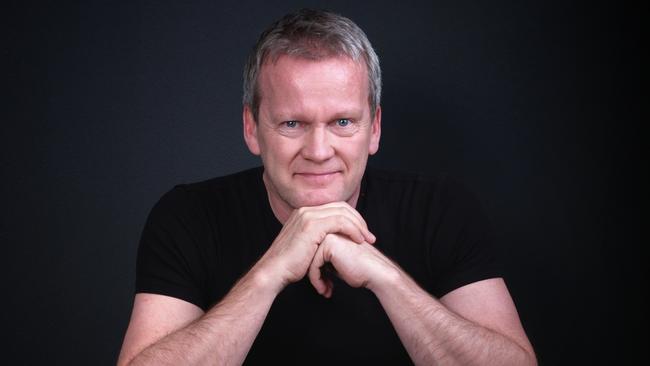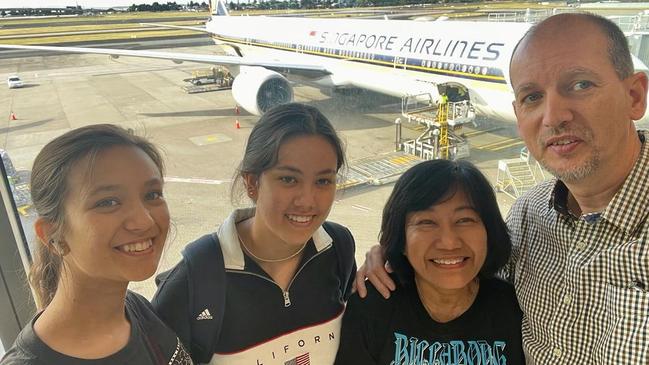PISA 2022: Singapore’s lessons for undisciplined, unmotivated Aussie students
Australian teenagers are up to four years behind their top-ranked Singaporean peers in their education. Here’s what experts and parents, with lessons from both sides of the pond, say could fix that.
Education
Don't miss out on the headlines from Education. Followed categories will be added to My News.
Australia’s waning appetite for educational success and the disappearance of classroom discipline are behind our falling results in international assessments, experts warn, with more tutoring and a “cultural reset” key to catching up with our Asia-Pacific neighbours.
The latest Programme for International Student Assessment (PISA) revealed Australian 15-year-olds remain up to four years academically behind their peers in Singapore, the global leader in reading, maths and science, prompting concern social factors and inequalities in the system are seeing Aussie kids left behind.
Even domestically, less than half of the Australian-born students tested achieved the national proficiency benchmark in maths, compared to 55 per cent of first-generation and 58 per cent of foreign-born students.
Leading education researcher Professor Bob Lingard said Singapore has a strong culture of academic excellence, and both its government and families will spend the money to prove it in the belief that if their children don’t excel, “they don’t have a future”.
“The only economic resource they have is human capital,” he said.

Professor Lingard also found himself struck by the “orderly classrooms” and reverential treatment he received from students while teaching in several Asian nations, and called for a “cultural reset” of the valuing of teachers back home.
Australian Tutoring Association CEO Mohan Dhall also said the PISA results have more to do with discipline than the quality of Aussie teachers, who “pound for pound, have broader skills than most other teachers globally”.

“Australian educators educate in a context that no one else does. You walk into a classroom, and a kid says to you, ‘f*** off’ – that’s their greeting,” he said.
“You’ve now got to make yourself relevant, you’ve got to create respect and create a bond and make people trust you. I don’t know of many other countries where teachers have to do that.”
Finnish educator and academic Pasi Sahlberg said while nations such as Singapore and Japan have shorter school days, “almost everybody goes to … private tutoring and after-school classes”.
“If we want to be like Singapore, then we just have to convince 70 to 80 per cent of kids and parents that they need to go back to school after coming home from school in the day.”

However, Professor Lingard warned there are features of international systems that education authorities here must avoid replicating, including high stress and poor mental health among students, as well as a loss of creativity and individualism.
“My Japanese friend’s kids always said they wanted to go back to Australia,” he said.
“Schooling is much more relaxed. (They) can’t play with their friends after school because they’re all doing homework or tutoring.”
Several Singaporean parents now living in Sydney reinforced the experts’ analysis, and in sharing their observations about both systems noted major differences in discipline and academic standards.

Mum Long Sin Yin said while school is not always the highest priority for Australian families, missing class time for holidays is “almost unheard of” in Singapore.
“Parents and teachers have lower expectations here, be it behaviour or academic achievement. They always praise their kids regardless of outcomes,” she said.
Expat Maria Wilkinson said there are “two sides to the coin”, and while Australian schools are less geared to students who strive in their education, there have been benefits for her two daughters, aged 16 and 18.
Academically-inclined eldest child Jamie now finds it easier to speak up for herself than some of her meeker Singaporean peers, she said, while navy cadet Rachel would have struggled to survive in her home country’s high-pressure school system.
“Australia gave her the best choice, if we were back home she’d be miserable,” Ms Wilkinson said.
“I definitely wouldn’t be putting Australia down.”





